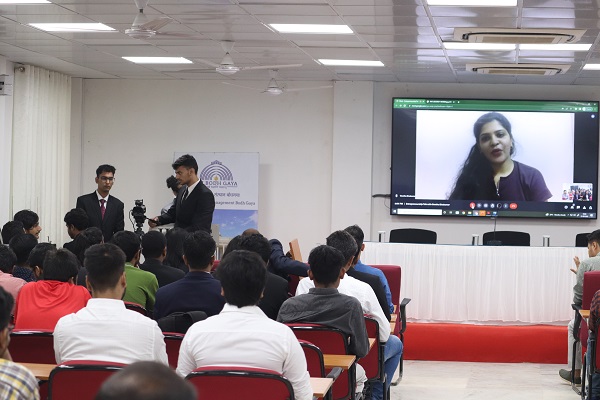Artificial Intelligence (AI) is reshaping industries worldwide, and finance stands at the forefront of this transformation. From algorithmic trading to risk assessment and customer experience, AI is revolutionizing traditional financial services, presenting new avenues for efficiency, precision, and innovation. This article explores the profound impact of AI on finance and how it’s fundamentally changing the landscape of money management, investment strategies, and customer interactions.

- Optimizing Decision-Making: AI algorithms excel at processing vast datasets swiftly, empowering financial institutions to make informed decisions based on data-driven insights. By discerning patterns, trends, and outliers in financial data, AI assists analysts and investors in evaluating risks, predicting market shifts, and refining investment tactics. Whether forecasting stock movements, gauging creditworthiness, or identifying fraudulent activities, AI-driven systems complement human judgment, enhancing decision-making processes within finance.
- The Rise of Algorithmic Trading: AI’s integration with finance is most evident in algorithmic trading. By swiftly analyzing real-time market conditions, AI algorithms execute trades and adjust portfolios at speeds surpassing human capabilities. Leveraging techniques like natural language processing (NLP) and sentiment analysis, AI systems parse news sources and social media to gauge market sentiment, guiding trading decisions. Consequently, algorithmic trading, powered by AI, dominates financial markets, influencing significant portions of trading activity across various asset classes.
- Advanced Risk Management: Effective risk management is paramount in financial services, and AI technologies play a pivotal role in this realm. AI-driven risk assessment systems evaluate credit, market, operational, and compliance risks with unprecedented accuracy and efficiency. By analyzing historical data and macroeconomic indicators, AI models proactively identify potential risks, enabling institutions to mitigate losses and safeguard investments effectively.
- Personalized Financial Solutions: AI-driven personalization is revolutionizing how financial services cater to consumers. By analyzing customer behaviors, preferences, and transaction histories, financial institutions offer tailored recommendations, products, and services. Whether suggesting investment opportunities, customizing insurance policies, or providing personalized budgeting advice, AI algorithms cater to individual needs, enhancing overall customer satisfaction and fostering lasting relationships.
- Strengthening Fraud Detection and Security: Financial fraud poses substantial threats, prompting AI-driven solutions to detect and prevent fraudulent activities across transactions. Machine learning algorithms analyze vast datasets in real-time, identifying suspicious patterns and behaviors to thwart fraud promptly. Additionally, AI-powered cybersecurity systems adapt to counter emerging threats, ensuring robust security in an increasingly digital financial landscape.
Conclusion: AI’s integration into finance marks a paradigm shift, unlocking unprecedented efficiency, precision, and innovation across various sectors. From algorithmic trading to risk assessment and customer-centric services, AI’s influence permeates every aspect of financial services, reshaping how money is managed, invested, and safeguarded. As AI continues to evolve, its impact on finance is poised to deepen, heralding a future of unparalleled opportunities and transformative changes in financial services.
Tags: AI Artificial Intelligence TechnologyYou might like reading:
Analysis of Tax reforms in Budget 2015
Proposal to reduce corporate tax from 30% to 25% over the next 4 years increase indirect tax. Implications: The proportion of tax payers is low in India and the black money is one of the major issues hindering the growth in India. So to have a better control over black money, government has reduced the corporate tax and is increasing […]

World Entrepreneurs’ Day at IIM Bodh Gaya
On the occasion of World Entrepreneurs’ Day, Envision Cell – the Entrepreneurship Cell of IIM Bodh Gaya organized ‘In-Campment,’ a campus start-up opportunity to explore the innovative edge of the students. The competition provided a platform for early-age start-ups and young entrepreneurs to enrich and prove their mettle in these uncertain times. The esteemed speakers, Ms. Geethu Sivakumar, Founder & […]






























